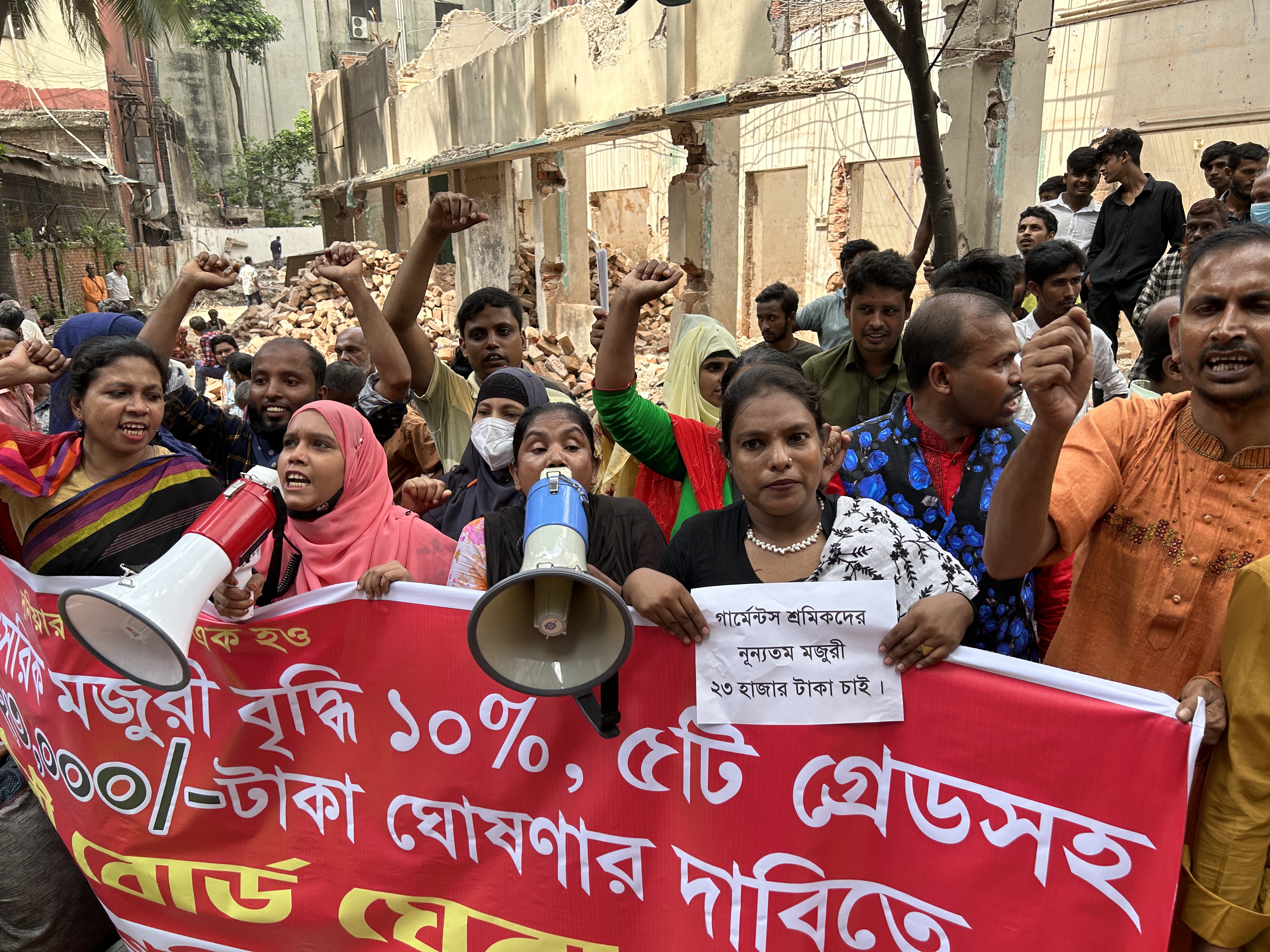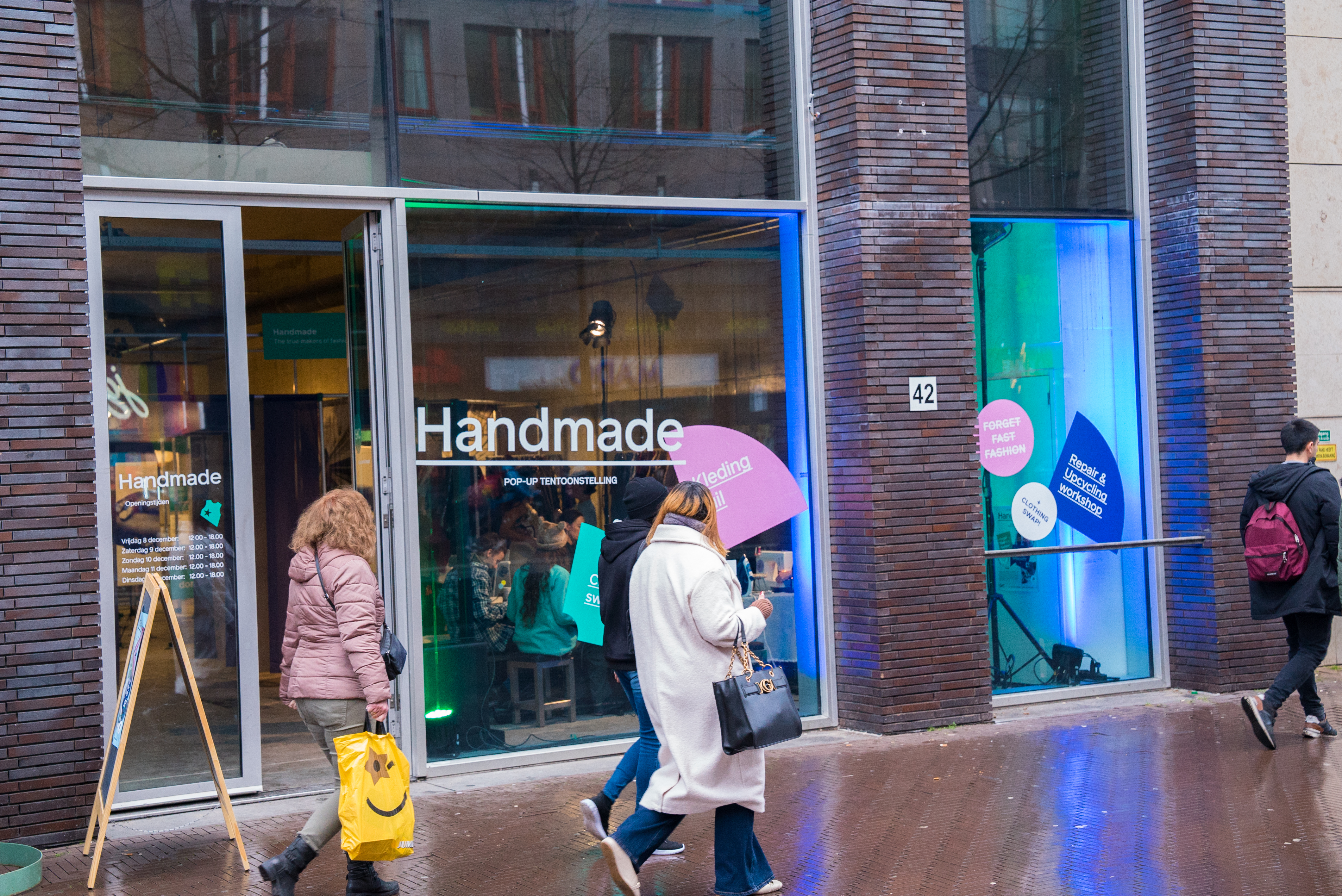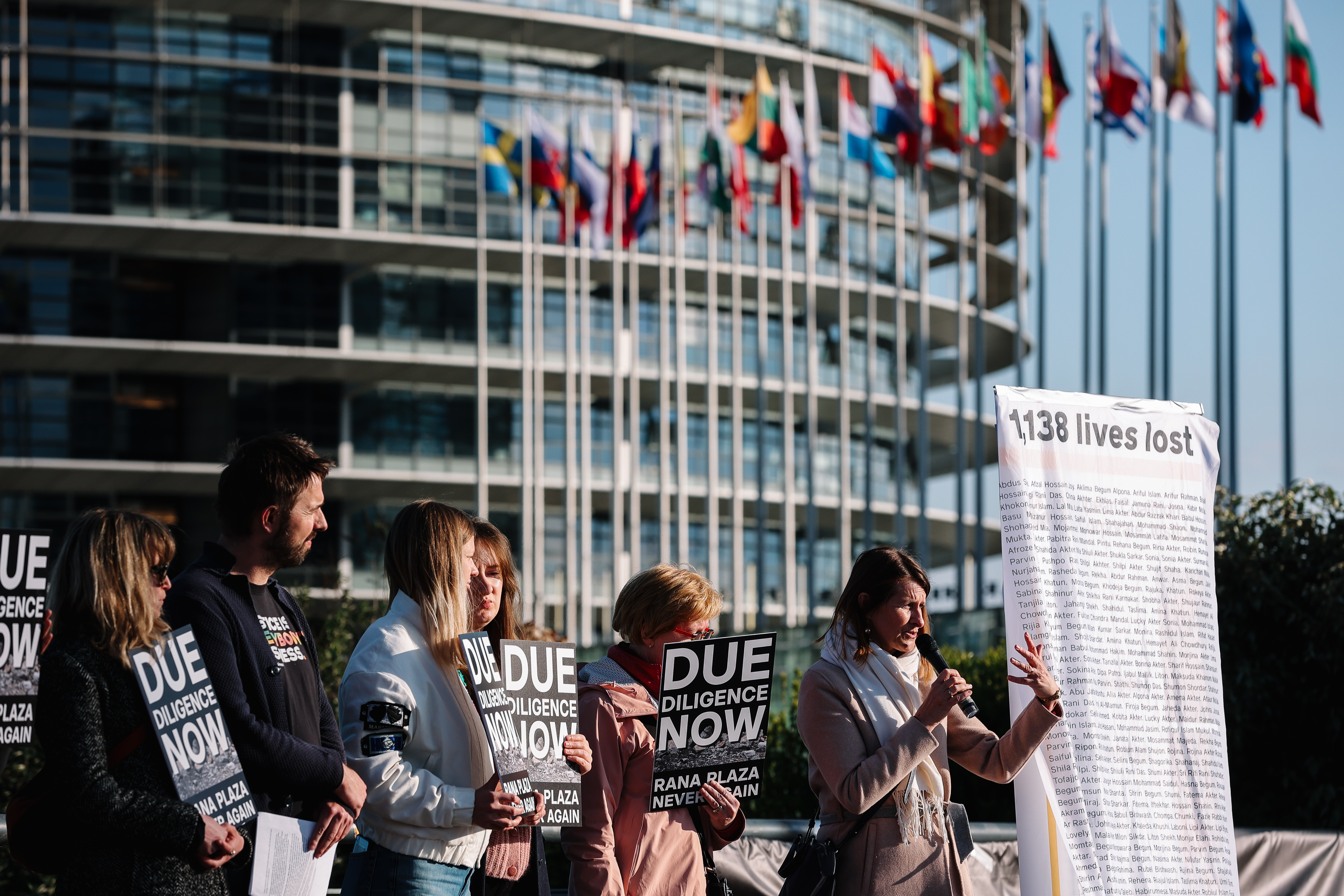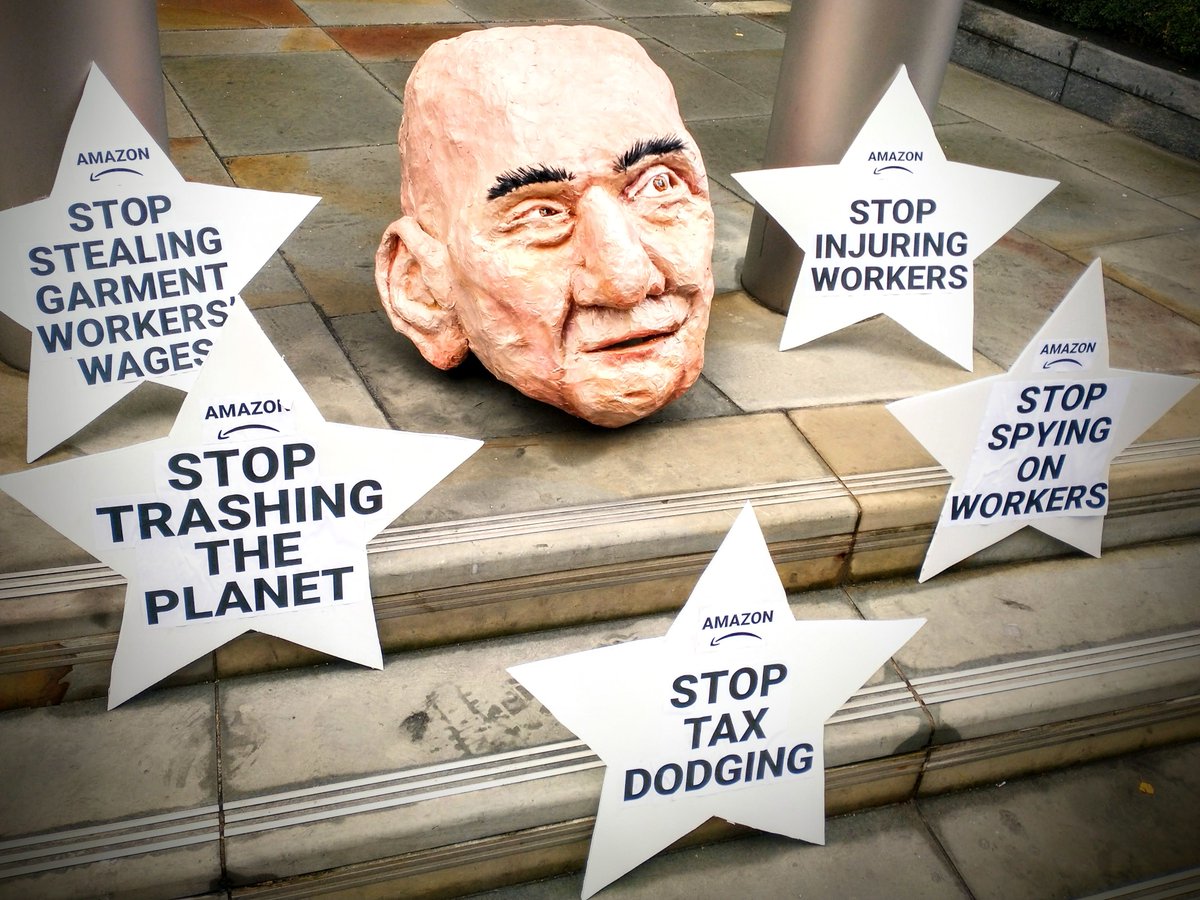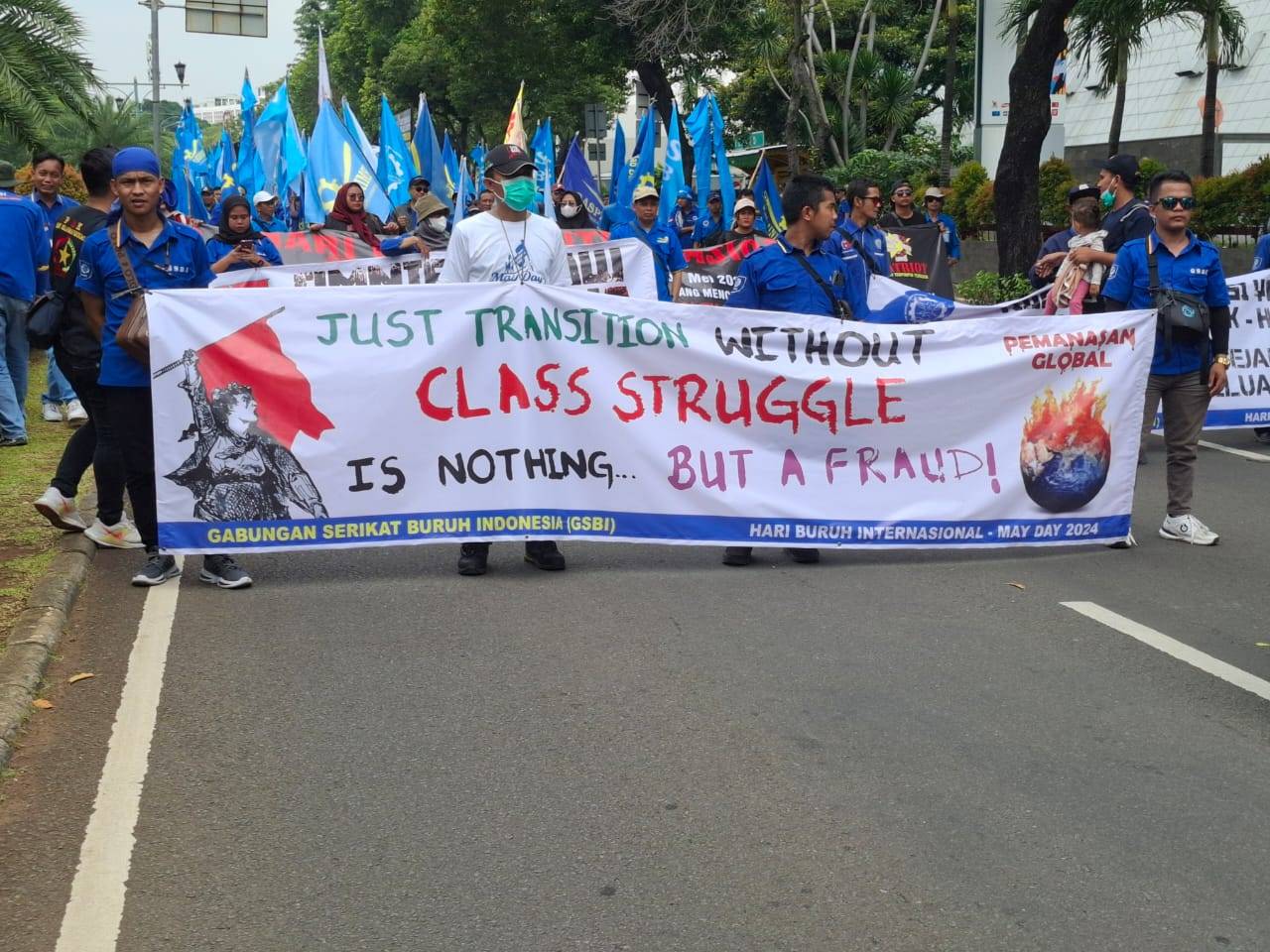No more bullshit
The garment producing system is unethical at every level, amplifying poverty, violence and pollution. Workers in the garment sector, North and South, earn poverty wages. The industry is rife with modern slavery, unsafe factories, wage theft. Unionisation efforts are too often met with ruthless repression. Workers are sexually harassed. Perhaps worst of all: global brands refuse to take any responsibility for the harm they cause.
All of this for accelerating micro-trends and low quality clothes. No one’s winning apart from billionaires and shareholders.
It’s easy to feel hopeless. But more and more people are getting informed and taking action and we are winning cases, new laws and agreements. This is our vision for a new fashion industry.
All workers earn a living wage and social security benefits, allowing them and their families to live in dignity.
Workers operate in safe factories, in healthy working conditions.
All workers can unionise and bargain collectively. No real change is posisble without workers standing up for their own rights.
Workers have fair contracts, and their due wages and benefits are paid.
Women, gender minorities, and other marginalised people in the workplace are free from harassment of any kind. Workplace policies are gender inclusive.
Worker well-being is included in climate and sustainability goals.
The public knows where and how their garments are produced.
The public isn’t lied to or manipulated by companies.
The public participates in and organises actions in solidarity with garment workers.
Governments protect the rights of trade unions and civil society organisations.
Governments hold companies accountable for their business practices nationally and globally, through laws and regulations, to ensure workers’ rights are respected.
Governments ensure workers have access to remedy where these rights are infringed.
Public procurement policies ensure that workers’ rights are respected.
Governments ensure workers and their representatives are part of any decision that effects them, especially the setting of minimum wage levels.
Companies carry out human rights due diligence to ensure that workers’ rights are respected in their supply chain, to identify and stop any human rights violations and remediate any harm.
Companies actively promote freedom of association and engage in collective bargaining with trade unions, including with workers in their supply chains.
Companies engage in responsible purchasing practices and ensure that pricing, terms of trade and other practices do not undermine workers’ rights. They pay prices that enable living wages, decent work and social security, and contribute to cost-sharing mechanisms for social protection and remediation of labour rights violations.
Companies operate transparently, publishing information about their supply chains.
Companies ensure that workers' rights are at the centre of their climate policies or any other policies.
The garment industry shifts to clean energy and stops overproduction.
Workers operate in cool factories and do not work during dangerously hot days.
Workers are compensated during work interruptions as a result of climate emergencies like floods or heat waves.
Only safe chemicals are used in the production of clothes.

